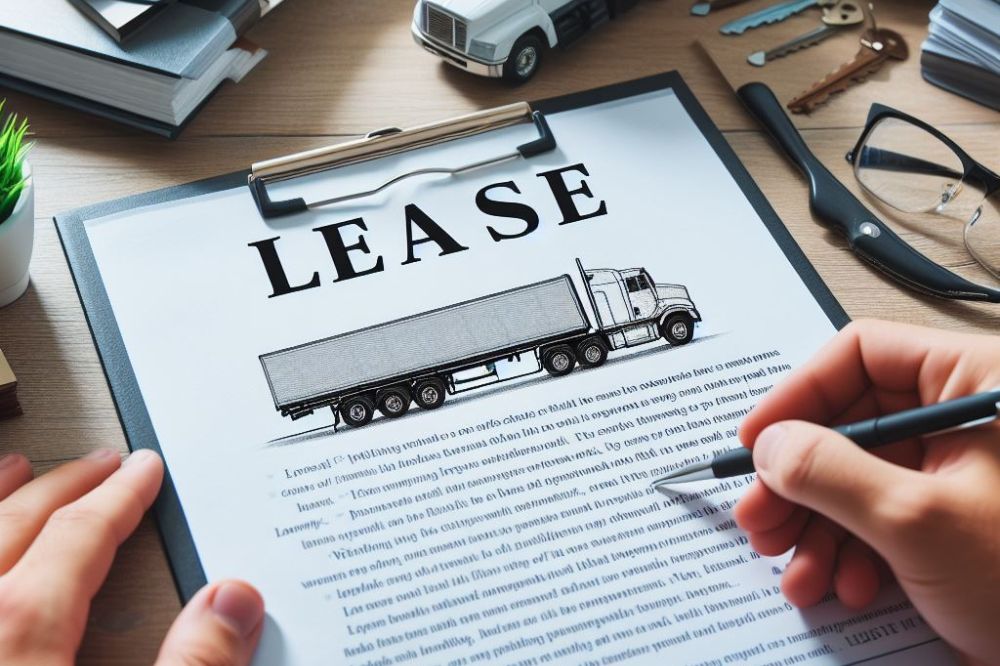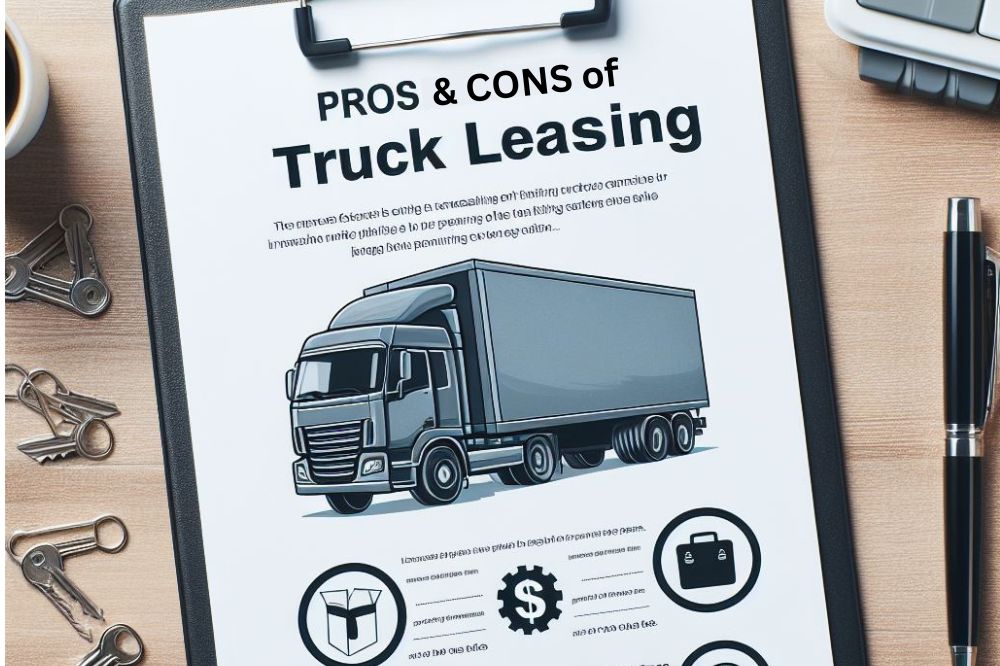
There are two main ways to acquire a commercial truck: purchasing one or leasing one.
Commercial truck leasing is a convenient solution for getting access to a semi-truck. The upfront costs are lower, and you eliminate many risks associated with owning a truck. However, commercial truck leasing also comes with its downsides.
We’ll explore everything you need to know about this in the guide below.
What is Commercial Truck Leasing?
Commercial truck leasing is when you rent a truck for a specified period instead of purchasing it outright. Leasing commercial vehicles involves a contract between the lessee (the party renting the truck) and the lessor (the owner or leasing company providing the truck).
Under a commercial truck lease, the lessee pays a regular monthly fee for using the truck over a predetermined period. The lease terms could include maintenance responsibilities, mileage limitations, insurance requirements, and potential penalties for excessive wear and tear on the vehicle.
There are various types of truck leasing options available, such as:
- Full-Service Leasing: This type of lease covers most costs associated with the truck, including maintenance, repairs, insurance, and sometimes even registration fees.
- Finance Lease: Also known as a capital lease, it’s more like a loan where the lessee assumes most of the responsibilities of ownership, including maintenance and insurance.
- Operating Lease: A short-term lease where the lessee doesn’t take on the risks of ownership. This type of lease often allows for easier upgrades to newer vehicles.

Essential Elements of a Commercial Truck Lease
While you can have different types of agreements for leased trucks, a leased vehicle agreement should include the following elements. Understanding the fine print of these different elements is essential before leasing a commercial vehicle.
Identification of Parties
The lease should clearly identify the lessor (owner or leasing company) and the lessee (the individual or business renting the truck).
Description of the Truck
The agreement should specify the truck’s details, including make, model, year, Vehicle Identification Number (VIN), and any additional features or equipment.
Lease Term
The agreement should state the duration of the lease, such as the start date and end date, or the duration of the lease period in months or years.
Payment Terms
This section outlines the financial aspects, including the amount of monthly lease payments, due dates, additional fees, and penalties for late payments or breaches of the agreement.
Maintenance and Repairs
The lease should define the responsibilities for maintaining and servicing the truck, specifying whether the lessor or lessee is responsible for preventive maintenance, repairs, and insurance coverage.
Usage Restrictions
Details covering how the truck can be used, mileage limits, geographical restrictions, and any prohibited activities should be clearly outlined.
Return Conditions
Conditions for returning the truck at the end of the lease term. This includes requirements for its condition, any excess wear-and-tear charges, and potential charges for exceeding agreed-upon mileage.

Insurance Requirements
Specifications regarding the types and levels of insurance coverage required for the leased truck, including liability, collision, and comprehensive coverage.
Early Termination or Buyout Options
Any provisions regarding early termination of the lease or options for the lessee to purchase the truck at the end of the lease term should be clearly stated.
Comparing Commercial Truck Leasing vs. Purchasing Options
Should you purchase or lease a commercial truck? Each option has its trade-offs.
Leasing offers lower initial costs, predictable monthly expenses, potential tax benefits, and easy upgrades. However, you don’t get ownership equity, and the long-term costs can add up.
On the other hand, buying a truck involves a higher upfront investment, but it gives you ownership of a significant asset, flexibility in your truck’s usage, and potential long-term cost savings.
However, ownership also involves bearing all maintenance costs and facing depreciation impacting resale value.
Choosing between leasing and purchasing should depend on your immediate cash flow, long-term business strategies, and operational requirements.
Owning a vehicle is typically preferred, but many trucking companies don’t have the cash to purchase a new truck. Leasing is also a standard solution for substitute vehicles to keep a fleet running and the business moving.

Commercial Truck Lease Pros and Cons
As we’ve already mentioned, commercial truck leasing comes with its pros and cons.
Pros
- Lower initial costs
- Monthly lease payments are more predictable
- Lease payments might be tax-deductible as a business expense
- Some leases include maintenance services
- Easier access to newer vehicle models at the end of the lease term
Cons
- Lessees do not gain ownership or equity in the truck.
- Lease agreements often involve mileage limits and usage constraints
- The long-term costs of leasing might be greater than ownership
Costs to Consider When Leasing Commercial Trucks
Leasing a commercial vehicle involves various costs. Here’s a breakdown of what you can expect.
Monthly Lease Payments
The main cost is the monthly lease payment, which covers truck use. This payment varies based on the type of lease, truck model, and your lease terms.
Down Payment or Initial Fees
Some leases require a down payment or initial fees upfront. These costs can vary and may include security deposits or the first month’s payment.
Maintenance and Repairs
Depending on the lease agreement, lessees might be responsible for maintenance and repair costs. Some leases include maintenance services, while others require lessees to cover these expenses separately.

Insurance
Lessees are typically required to have insurance coverage for the leased truck. Insurance costs vary based on coverage types, deductibles, and the truck’s value.
Excess Mileage or Usage Fees
Lease agreements often include a maximum mileage limit. If this limit is exceeded, additional fees per mile might apply.
Taxes and Fees
There may be taxes, registration fees, and administrative costs associated with leasing a commercial truck.
Early Termination Fees
Terminating a lease before the agreed-upon term might result in penalties or early termination fees.
Final Thoughts
Leasing a truck might seem like an attractive option, but in the long run, it’s generally best to own a vehicle.
Luckily, it’s possible to access affordable vehicle financing that makes purchasing a commercial truck an easy process. Get in touch with Mission Financial Services to gain the funding for your dream truck.


